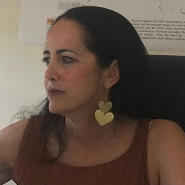Solid State Refrigeration
A special issue of Magnetochemistry (ISSN 2312-7481).
Deadline for manuscript submissions: closed (31 October 2018) | Viewed by 336
Special Issue Editor
Interests: caloric cooling; vapor compression plants; refrigerant fluids; convective boiling; nanofluids; earth–air heat exchangers; renewable energy systems
Special Issues, Collections and Topics in MDPI journals
Special Issue Information
Dear Colleagues,
Worldwide, about 17% of the overall energy consumption originates from refrigeration. Most of the refrigeration applications are based on vapor compression plants. They are characterized by the use of environmentally-harmful refrigerants. Therefore, the scientific community has devoted its attention toward non-vapor-compression technologies for refrigeration and air conditioning. Between these technologies, solid-state cooling methods promise high system efficiency. When the refrigerant is solid, it has essentially zero vapor pressure and, therefore, it is ecological since it has no direct Ozone Depletion Potential (ODP) and zero direct Global Warming Potential (GWP). Caloric refrigeration embraces four main cooling techniques, each one based on a different caloric effect. These techniques are linked to the group of materials that show a MagnetoCaloric (MCE), ElectroCaloric (ECE), elastoCaloric (eCE) and BaroCaloric (BCE) Effect. This effect is linked to the variation in the temperature of caloric material in adiabatic conditions (DTad) or the variation of entropy in isothermal conditions (DST) when an applied external field changes. The external stimulus can be: magnetic field, electric field, uniaxial stress and hydrostatic pressure. Large values of DTad and DST are found when the material is in the vicinity of a phase transition. The magnitude of all these caloric effects opens up new perspectives for designing solid-state refrigeration devices as alternatives to the presently existing technologies based on vapor compression. Based on Caloric effect, the Active Caloric Regenerator is the core of an active regenerative thermodynamic cycle (AMR, AER, AeR, ABR). The performances of an active refrigerator are mostly influenced by the particular solid materials employed.
The main goal of this Special Issue of Magnetochemistry is to analyze: Magnetocaloric (MM), Electrocaloric (EM), elastocaloric (eM) and Barocaloric (BM) Materials from both theoretical and experimental points of view. Therefore, all the papers focusing on MM, EM, eM and BM characterization, with respect to magnetic, electrical and mechanical properties, are welcomed, together with papers based on the evaluation of the energetic performances of AMR, AER, AeR or ABR plants.
Prof. Dr. Adriana Greco
Guest Editor
Manuscript Submission Information
Manuscripts should be submitted online at www.mdpi.com by registering and logging in to this website. Once you are registered, click here to go to the submission form. Manuscripts can be submitted until the deadline. All submissions that pass pre-check are peer-reviewed. Accepted papers will be published continuously in the journal (as soon as accepted) and will be listed together on the special issue website. Research articles, review articles as well as short communications are invited. For planned papers, a title and short abstract (about 100 words) can be sent to the Editorial Office for announcement on this website.
Submitted manuscripts should not have been published previously, nor be under consideration for publication elsewhere (except conference proceedings papers). All manuscripts are thoroughly refereed through a single-blind peer-review process. A guide for authors and other relevant information for submission of manuscripts is available on the Instructions for Authors page. Magnetochemistry is an international peer-reviewed open access monthly journal published by MDPI.
Please visit the Instructions for Authors page before submitting a manuscript. The Article Processing Charge (APC) for publication in this open access journal is 2700 CHF (Swiss Francs). Submitted papers should be well formatted and use good English. Authors may use MDPI's English editing service prior to publication or during author revisions.
Keywords
- Solid state refrigeration
- Solid state physics
- Magnetic refrigeration
- Electrocaloric refrigeration
- Elastocaloric refrigeration
- Barocaloric refrigeration
- Magnetic Materials
- Electrocaloric Materials
- Elastocaloric Materials
- Barocaloric materials
- Adiabatic temperature variation
- Isothermal Entropy variation
- Characterization of materials





